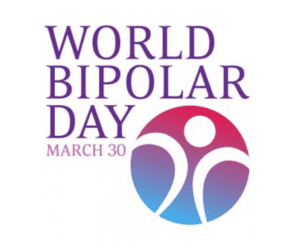Bipolar disorders cause unusual shifts in mood, energy, activity levels, concentration, and the ability to carry out day-to-day tasks. Bipolar disorder encompasses 3 different conditions: Bipolar I disorder, Bipolar II disorder, and Cyclothymic disorder. People living with a bipolar disorder experience episodes of Mania/Hypomania (elevated mood, inflated self-esteem, decreased need for sleep, etc.) and depressive episodes (feeling down/hopeless, trouble concentrating, fatigue, etc.).
Among perinatal patients, onset of bipolar disorder may be seen in the perinatal period. It is thought that childbirth can be a triggering event for onset of serious mental illnesses including Bipolar disorder. Although more research is needed, one review suggests that between 21% and 54% of women diagnosed with postpartum depression (PPD) may meet the DSM criteria for bipolar disorder. In patients who screen positive for perinatal depression using a validated screening tool such as the EPDS, further evaluation for possible Bipolar disorder is warranted. Research has also found a link between postpartum psychosis and Bipolar disorder. One key risk factor for postpartum psychosis is previous diagnosis of Bipolar Disorder in the patient or close family member. Likewise, some patients who experience postpartum psychosis are likely to develop Bipolar disorder or another serious mental illness.
Bipolar disorders can also present itself in teens and in even in 3% of children as young as 5. Examples of a manic episode in this age group includes intense silliness, trouble focusing, have trouble sleeping without feeling tired, and a short temper/irritability (especially among teens) and examples of a depressive episode includes frequent sadness, difficulty communicating or maintaining relationships, and even complaints about stomach pain or headaches. Additionally, bipolar disorder may co-occur with disorders such as ADHD, conduct problems, major depression, and anxiety disorders. More work needs to be done to clarify how bipolar disorders present in children/adolescents compared to adults and diagnosing bipolar disorder can be complicated, requiring a careful and thorough evaluation by an experienced mental health professional.
If you see a patient in your practice and have concerns for bipolar disorder, you can contact NC-PAL for support in screening and treatment options for your patient.
